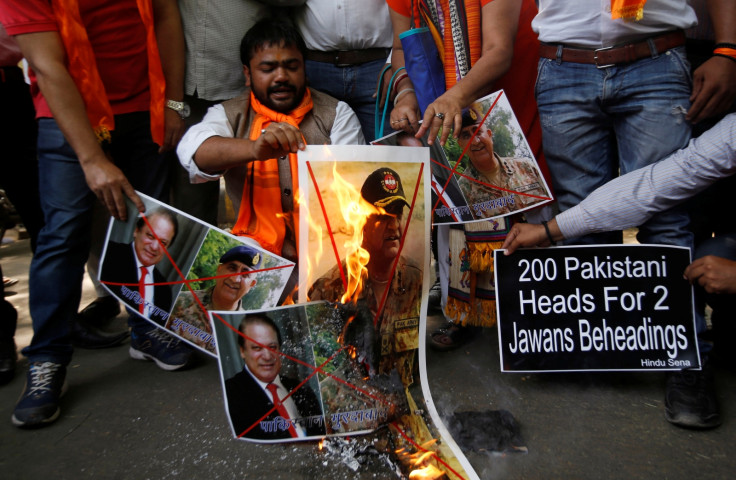Pakistan denies allegations that it mutilated the bodies of 2 Indian soldiers
Earlier India's Defence Minister Arun Jaitley had condemned the mutilation incident as 'reprehensible and inhuman'.
Pakistan has dismissed New Delhi's accusations that it mutilated the bodies of two Indian soldiers killed in firing along the Line of Control in the state of Jammu and Kashmir.
"Pakistan Army did not commit any ceasefire violation on line of control or a Border Action Team (BAT) action in Buttal sector (Indian Krishna Ghatti Sector) as alleged by India. Indian blame of mutilating Indian soldiers' bodies is also false", Major General Asif Ghafoor, director general Inter Services Public Relations, said in a statement.
"Pakistan Army is a highly professional force and shall never disrespect a soldier even Indian," he added.
India had earlier accused the BAT, which comprises the Special Forces of Pakistan, of carrying out the assault on 1 May.
The Indian army said Pakistani forces attacked one of their patrol units along the control line and killed one of its soldiers, Naib Subedar Paramjeet Singh, and Border Security Force head constable Prem Sagar.
Their bodies were also mutilated, the army added, calling it an "unsoldierly act".
Condemning the alleged incident India's Defence Minister Arun Jaitley said it was "reprehensible and inhuman," adding that such acts "do not take place even during war".
"The entire country has full faith in the army that they will give the appropriate response," Jaitley said.
Meanwhile, the Indian army has vowed revenge for the mutilation of its soldiers' bodies.
The latest incident is set to worsen ties between the two countries, which have been deeply strained following Pakistan's sentencing of Indian "spy" Kulbhushan Jadhav to death in April.
Jadhav was arrested in March 2016 for alleged espionage activities in the restive Balochistan region. India has denied the spying charges but acknowledged he was a former naval officer.

© Copyright IBTimes 2025. All rights reserved.



















